“Living in a land Luanda oh yeah heh” – fake words of Men At Work.
The first thing to note is that Luanda is huge, and chaotic. The city responsible for capitaling 2006 World Cup debutants Angola
Once a nightmare visa system to even try to get into Angola, things eased in 2018 with the introduction of the evisa. This was an impressive move by the Angolan government and made me very eager to test the evisa and try to get in. I filled in the online application form, got booked into the excellent Afilux Residencial Hotel and hoped that I would be able to buy my visa at the border now I had the online application accepted. I didn’t even need to visit an Embassy – a rarity when backpacking Africa. I flew into Luanda airport three times on the same trip (in February 2020) and it was on the middle visit of that hat-trick that I secured the visa and went through the visa process…leaving the airport and delving to explore.
Now that I had arrived in Luanda International Airport, I had a lift organised by the kind folk at my hotel. I got some money changed but as I waited for my lift, I noticed that the airport had free Wi-Fi, so I went to a bar and grabbed a beer and went online. Then my driver arrived and it was off to explore this humungous city. These are my personal top 17 sights. I have also written separately about my trip to the Shipwreck Cemetery in Panguila and indeed my stay at the Afilux Residencial Hotel.
Here are my top 17 sights in Luanda, I apologise not all have good photos as I lost most of my photos from September 2018 – May 2019 when I lost my phone in my accident in Poland. I was particularly upset that I lost all my photos of Ponto Final (final point – the western tip of Luanda) as that was a very satisfying moment….
1.Port of Luanda
Luanda is a port and I visited the seafront and beaches twice, aside from my trip to Panguila. The clock tower and port building are both pretty but also had clear Portuguese influences from the colonial times. People were very calm here on my strolls – relaxing in the sun, waiting for buses.
2.Luanda CBD
Downtown Luanda was fairly far from my hotel but I had a driver on 2 different days and was able to get downtown, have a drink and some food in the heart of the action. We actually had a delicious fish meal in a posh place – the food was totally brilliant in the central business district. I was also in a few local bars which were crowded and yes – a lot of locals were drunk!!
We ate a bit posh here at A La Carte Kasta Restaurant – but it was still less than $10 US for the meal with rice, salad and beer. It has been rumoured that Luanda is one of the dearest cities in the world. You can squash those rumours with your $1 beers in a local roadside shack! My local was Josimar Ramos Bar.
3.Estadio Dos Coquieros
Two football stadiums were on my list here as a football geek and veteran of over 700 live matches. I wanted to head to both the stadium where World Cup winner Rivaldo once played, as well as the National football stadium. The Estadio Dos Coquieros is walkable from the CBD. The other stadium is MILES out of the city (and I mean miles – I had to ask a driver to take me here).
Rivaldo had an amazing career in football. He won the World Cup in 2002 and was runner up in 1998. He was capped by Brazil from 1993 – 2003 and his career was decorated in trophies and whackpacking. He travelled a lot as a professional footballer, plying his club trade in 7 countries. His vast array of clubs include Olympiakos (Greece), FC Bunyodkor (Uzbekistan), Palmeiras (Brazil), Deportivo La Coruna (Spain), Barcelona (Catalonia), AC Milan (Italy) and Mogi Mirim (also Brazil). However at the end of his career, in 2012, he joined Kabuscorp S.C.P., based here at the Estadio Dos Coquieros in Luanda. It was a big thing for an Angolan side to have a World Cup winner in their ranks.
However, I was banned from going inside. In fact, the staff manning the stadium were armed with guns and were very rude to me. I tried to explain that I am just a backpacking football tourist that likes to visit stadiums on my journeys. I still count this as a visit of course, as I scaled the exterior. Unfortunately there was no club shop open and there was no match on for me to watch. I still got some photos but nothing positive to say about the unfriendly Angola guards and peelers…
4.Esplanade and Beach
As a seaside kid from Bangor in Northern Ireland, of course I had to visit the beach. Locals told me this area is dangerous. What they meant was that you could be robbed or pick pocketed. I was here two nights in a row, around sunset and had a few drinks and snacks locally. I didn’t carry much money or valuables with me. But it seemed safer and friendlier than I was told.
Restaurant staff try to recommend you get a taxi though.
5.National Bank Angola (BNA)
I didn’t go inside the National Bank but it is one of the most obviously noticeable and prominent buildings down by the seafront. This building is pink and white and on a corner. It looks like a city hall. It is opposite the museum of money and near the port entrance.
6.Money Museum
Museums for money don’t usually blow my mind or even make my list. But I just had to visit this one as it was an easy visit, being opposite the bank, being central and also free to visit and quick. Angola National Money Museum shows the history of the Kwanza. As a nationalist and separatist, I love countries that have their own currency (hence why I despise the dreaded Euro or West African Franc).
(I lost all my photos of this. I will add them if they are ever recovered)
7.Coastal Road – Avenida 4 de Fevereiro
I loved the coastal road drive on the peninsula, it is known as Avenida 4 de Fevereiro. This is the road that leads all the way to Ponte Finale past a lot of beach football, the Thomson Art House and the beach and promenade.
(I lost all my photos of this. I will add them if they are ever recovered)
8.Ponte Finale
It’s the end of the road my friends…and I headed to see this place. Ponte Finale – the final tip – the last point of Luanda – it is as far west as the city gets on the brave Atlantic Ocean.
(I lost all my photos of this. I will add them if they are ever recovered)
9.Monument
I walked to the memorial monument downtown by the square near the National Bank.
(I lost all my photos of this. I will add them if they are ever recovered)
10.Church of Our Lady of Remedies (Igreja Nossa Senhora dos Remédios)
Okay so the name of this impressive church is a mouthful, Church of Our Lady of Remedies (Igreja Nossa Senhora dos Remédios)…I popped in for a prayer. Angola as a country has many different religions but due to the Portuguese influence and history, Catholicism plays a big part in it and of course, this church is central, important and pretty.
11.Fortaleza de São Miguel
Fortaleza might be a city in Brazil but it also of course means “fort” or “castle” and Luanda has an impressive one to check out – Fortaleza de Sao Miguel. We stopped and saw it from the outside. I decided against going in and doing the tour this time. I have seen enough castles in honesty and couldn’t be bothered. It doesn’t mean you should skip it nor should I leave it off my top 17 sights. I lost my photos of it, but you can see it in the background of this photo which I took from the car.
12.The Agostinho Neto Mausoleum
The Agostinho Neto Mausoleum is a huge garden, park, building and statue area dedicated to Agostinho Neto, Angola’s first president. The staff here were pretty friendly and didn’t charge entry, there is a view of the city f rom the top. The piercing monument references Agostinho Neto’s poem “The Path of the Stars,”and bears the name of his poetry book “Sacred Hope.” But again, I took a load of photos here and lost them. Only one remains, as luckily this one I posted it to Facebook.
13.Palacio De Ferro
I didn’t go into the Palacio De Ferro but you cannot help admire the design and colour – a striking yellow and white building. It’s the yellow palace.
14.National Assembly
Hoepfully tourism in Angola is on the turn, after the barren years and political problems. The National Assembly building is impressive and can be seen even from the seafront. We stopped outside for photos but weren’t permitted into the grounds. Security seemed pretty strict.
15.City Viewpoints
Many places have a city viewpoint including the top of the Agostinho Neto Mausoleum. However, I actually preferred the top floor views from my own hotel (Afilux Residencial) and that from the third floor bar at Thomson Art House.
16.Estadio 11 Novembre
So I went to the stadium where Rivaldo once played but then I wanted to head to the national stadium – Estadio 11 Novembre. Back in 2016, Angola were in the World Cup for the first time. I was blown away by how impressive and HUGE their national stadium is – the location leaves a lot to be desired and to be truthful it’s not really in Luanda. It is well outside the city. It took us 45 minutes to get here from the seafront but it was well worth it.
I got my photos beside the mascot and we circled around the stadium. My driver Domingos was excellent – we saw a lot together and he helped me to see the sights I wanted in the city.
The stadium’s name, 11th November is Independence Day in Angola (of course). The stadium was completed in 2010 ahead of the 2010 Africa Cup of Nations, it hosted nine matches during the tournament, including five Group A matches, one group B match, one quarter final, one semi-final, and the final. It holds a whopping 48,000 people!!
17.Thomson Art House
Last but by no means least and also by no means completely Angolan, is the Thomson Art House. What on earth is it?
Thomson Art House is a 4 storey building down by the seafront. Inside, is a bar, a cafe, a top floor restaurant, a meeting venue (for business), a hotel and the main attractions for me – ART and WI-FI!!
To be truthful, I actually only came in here to have a beer and use their Wi-Fi!!! But I ended up loving it – all the art – the top floor bar, that I was here two days in a row, had a fair few beers, met a lot of people and spoke to the staff. It is also very important to note that this is probably the best hotel for foreigners to stay in.
I didn’t stay here though and I am glad I didn’t – my local neighbourhood in Palanca felt more raw and rough for Luanda city life.
On one side, Luanda Art House looks back into the city of Luanda and on the other side, you get a view over the deep Atlantic Ocean. Aside from the art, the cold beers and the only Wi-Fi bar in existence (jokingly obviously but they are hard to find!!), the staff here also help organise tours of Luanda city, to Panguila to the shipwreck graveyard and to other remote parts of Angola. Thomson Art House is worth a trip.
Here are a few more photos from my time backpacking in Luanda, Angola. It is a city for sure worth visiting.
Here are some videos from my time backpacking in Luanda, Angola :

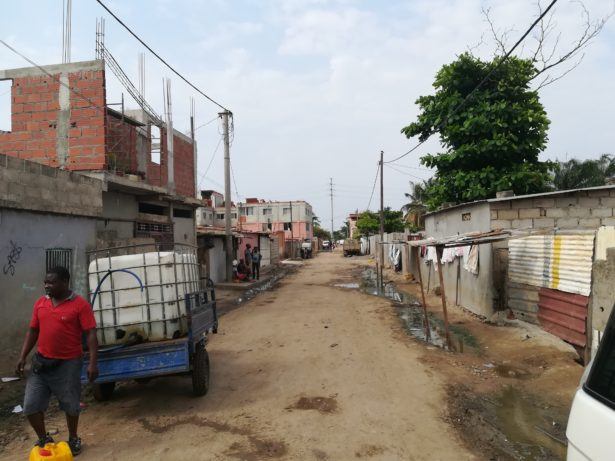
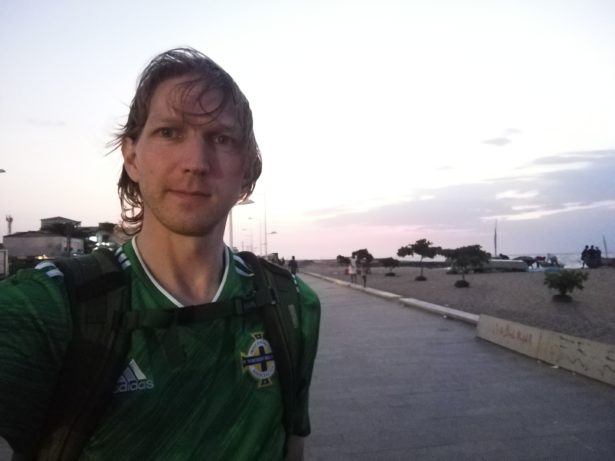
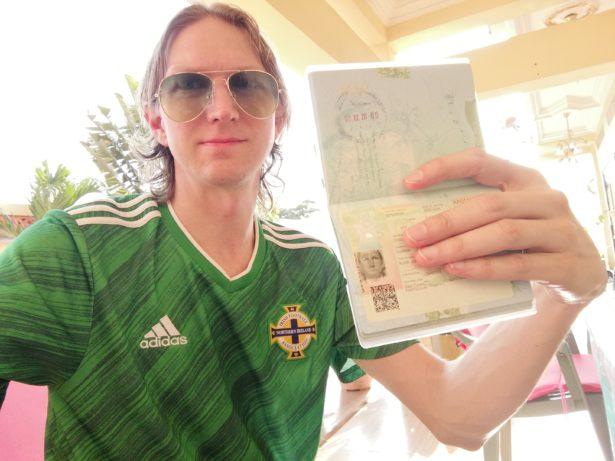
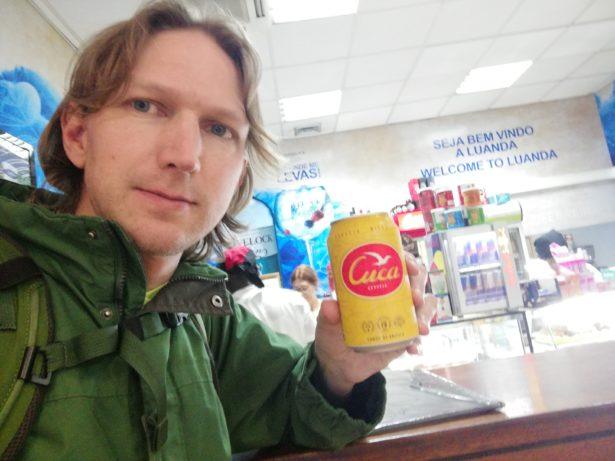
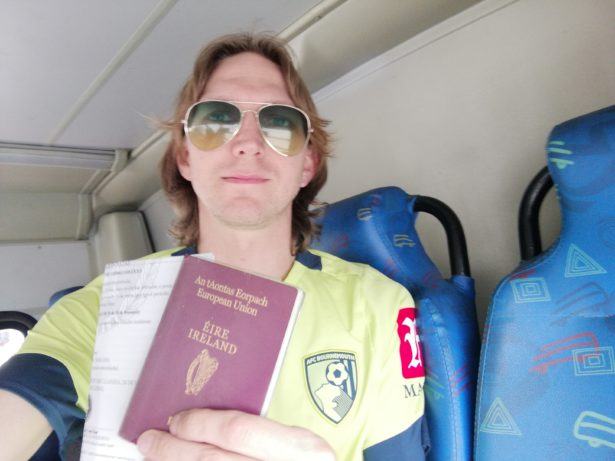
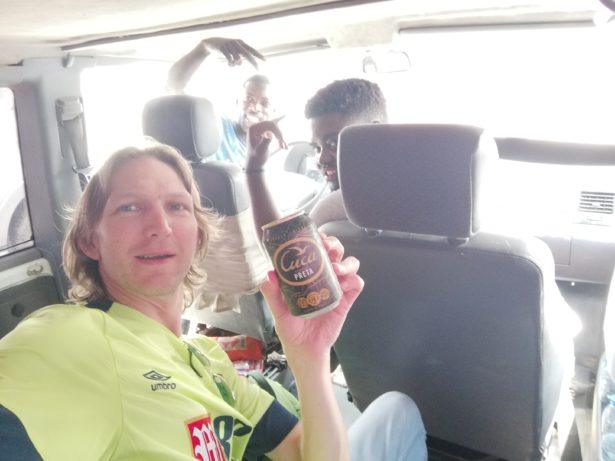
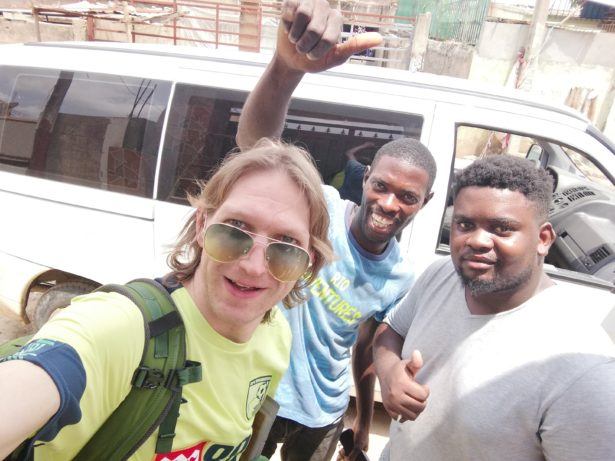
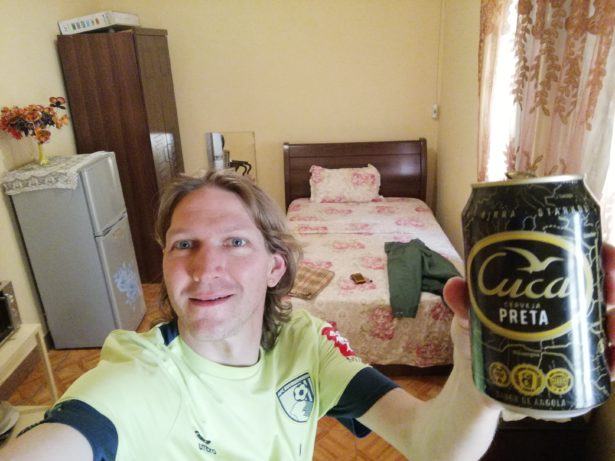
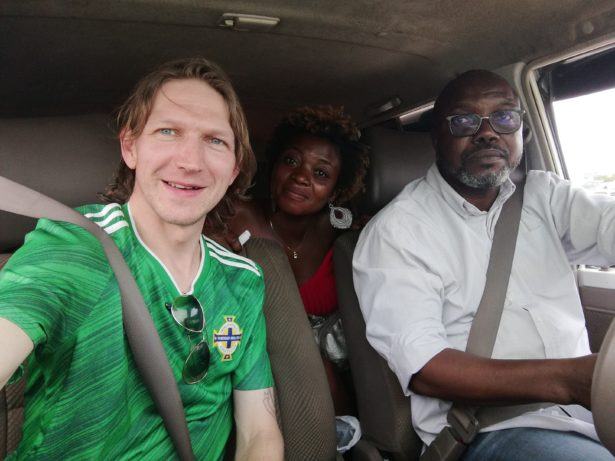
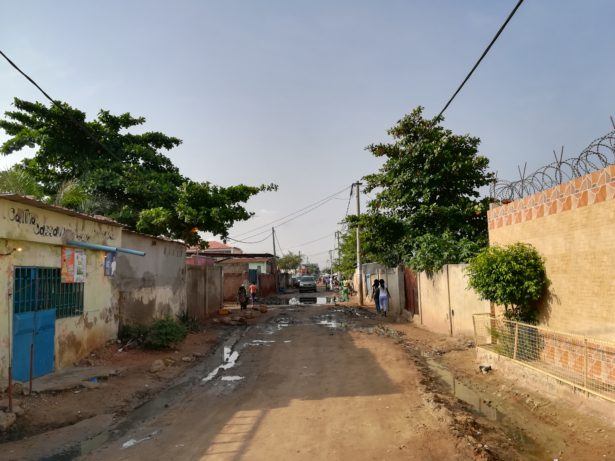
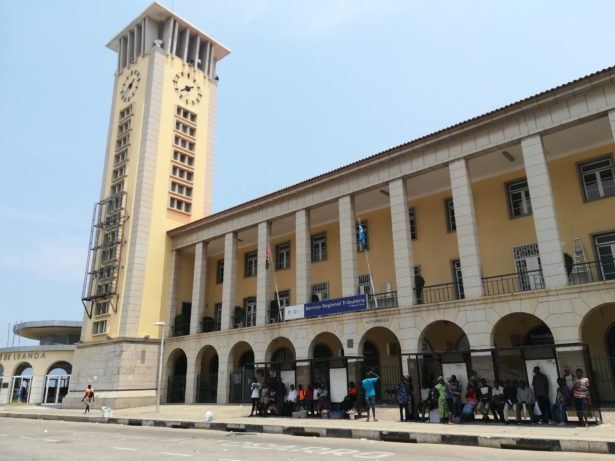
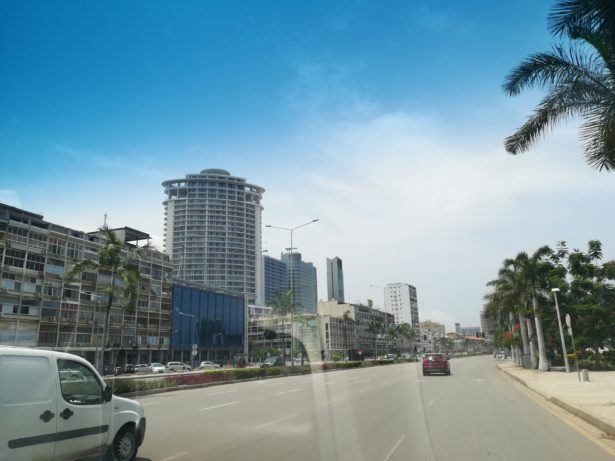
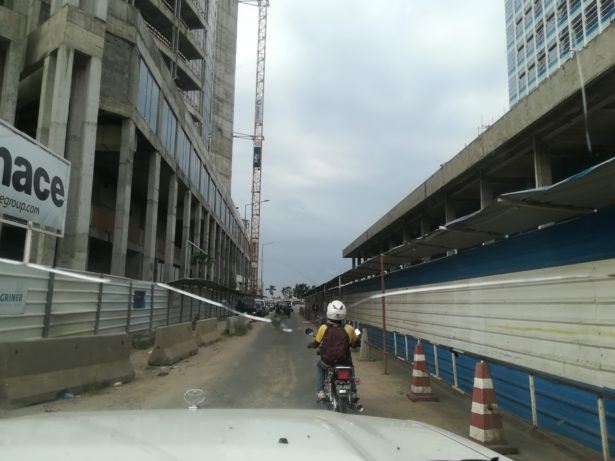
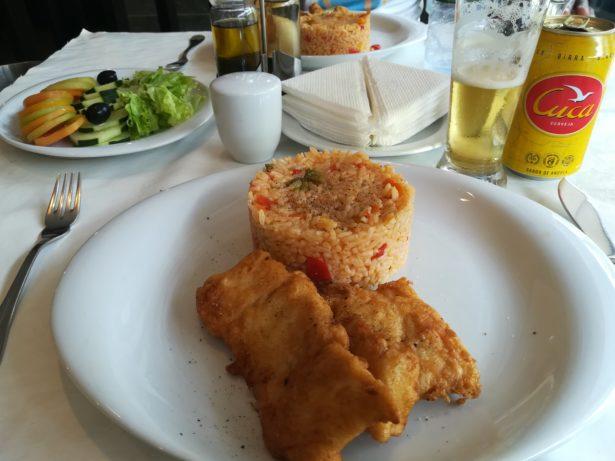
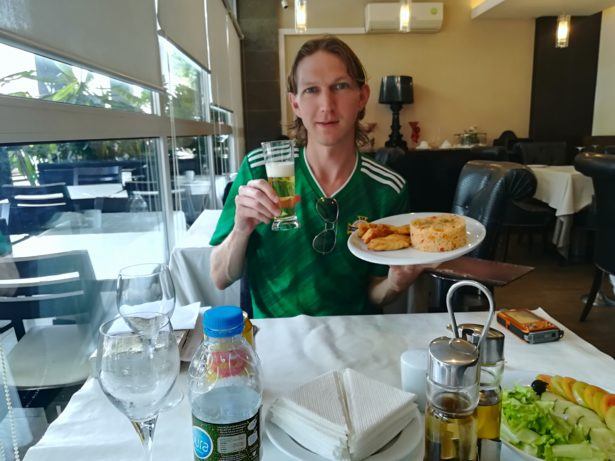
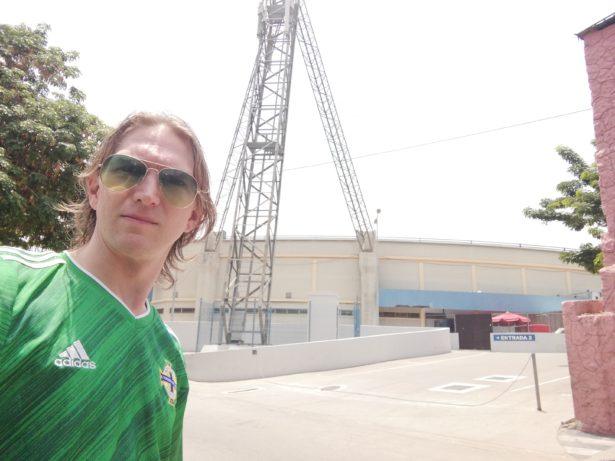
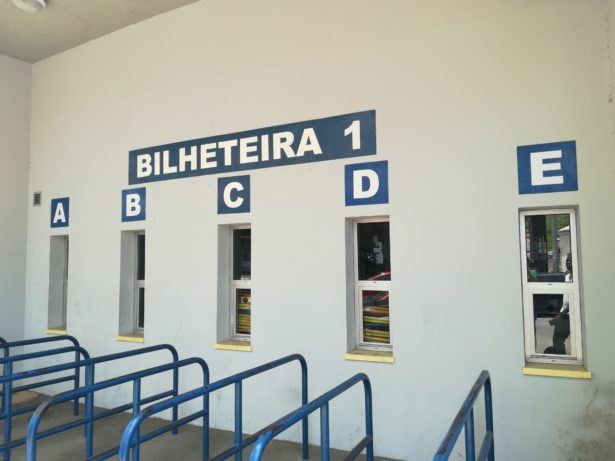
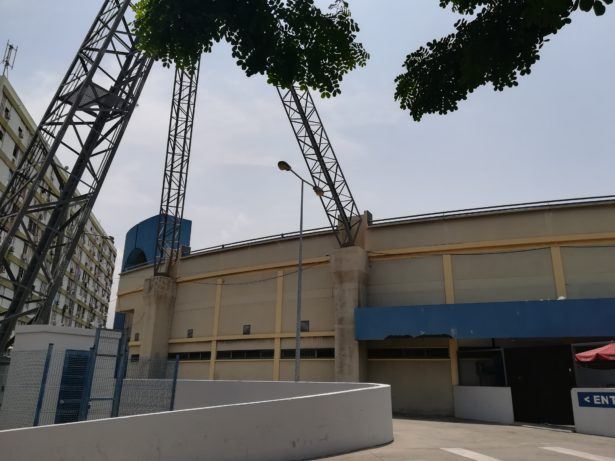
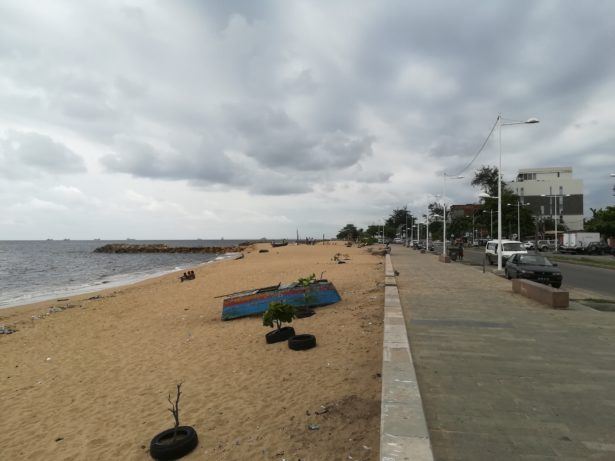
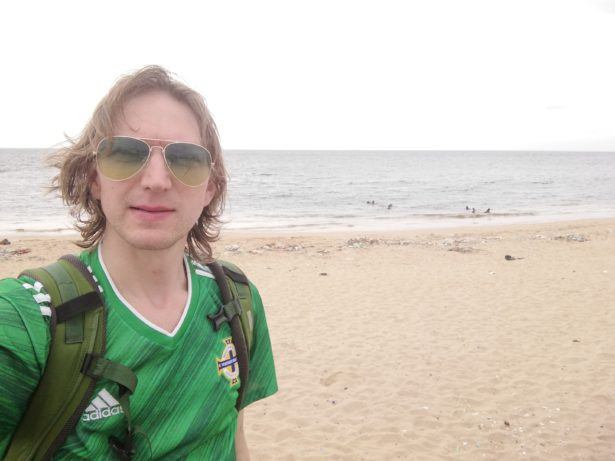
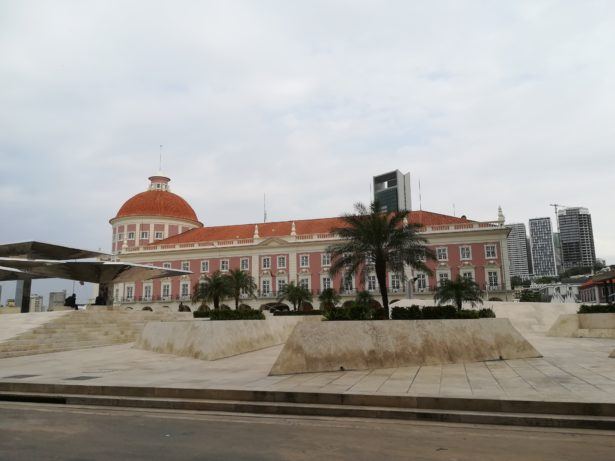
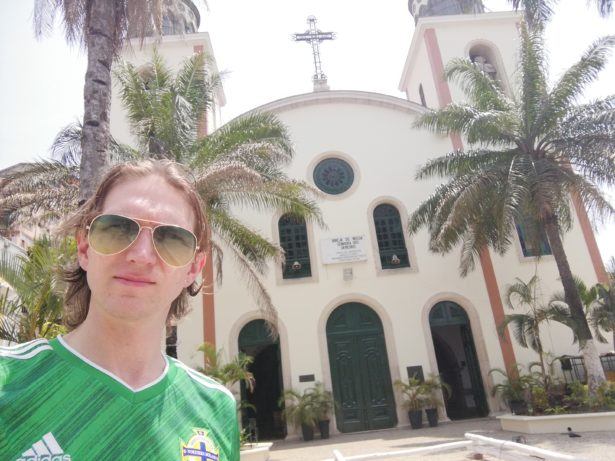
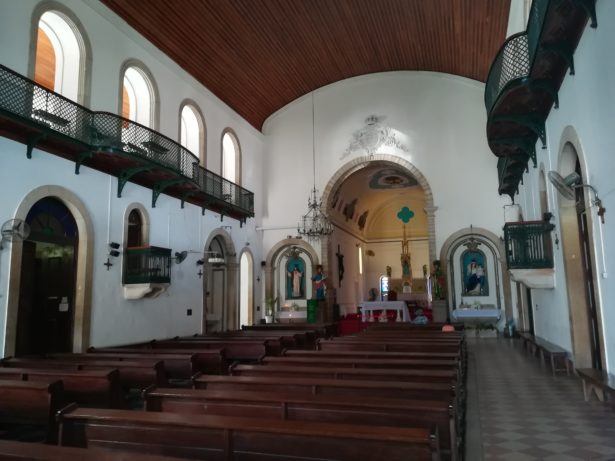
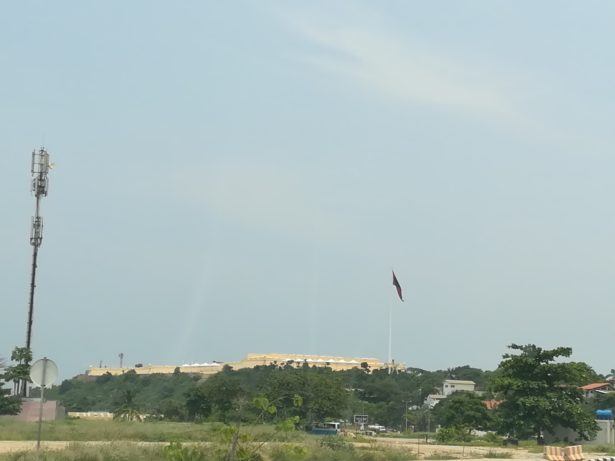
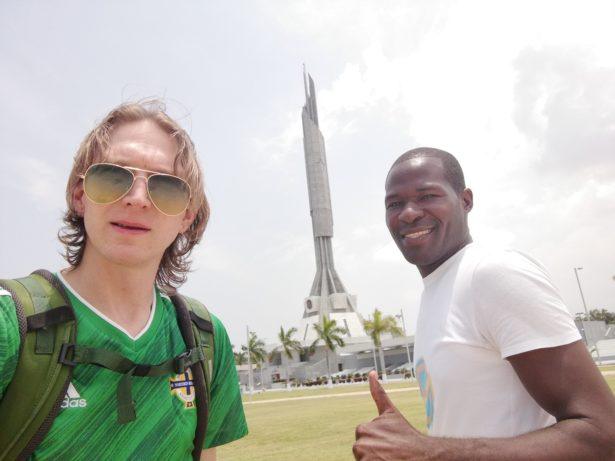
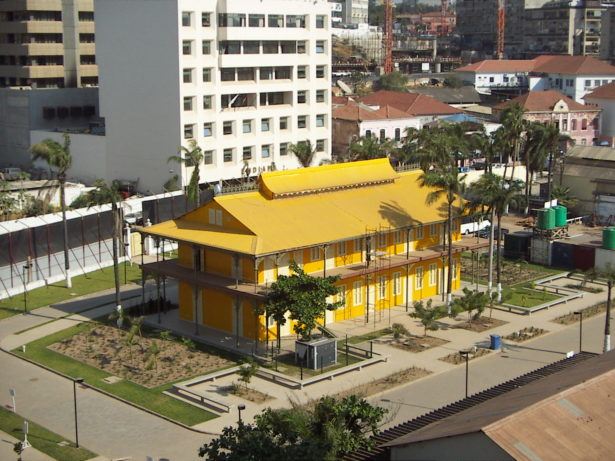
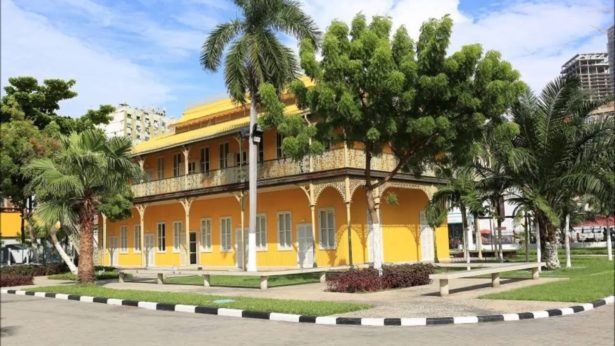
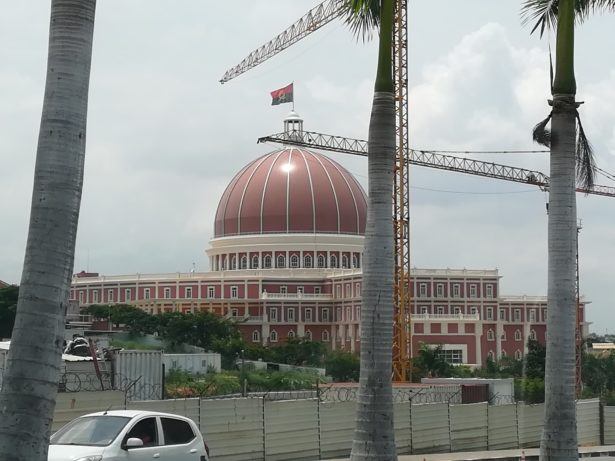
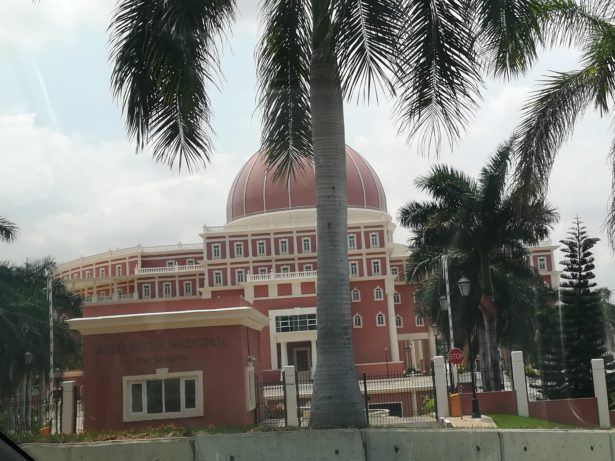
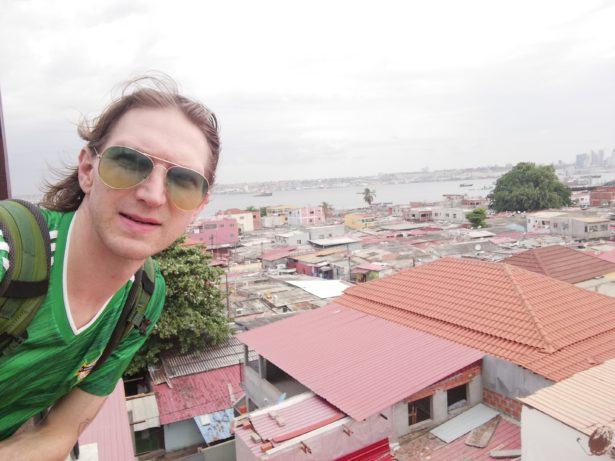
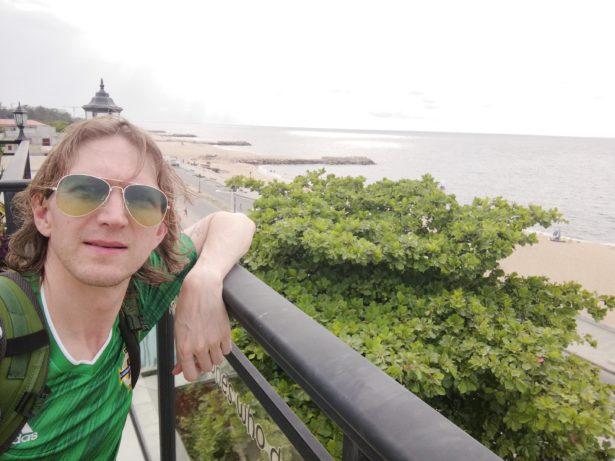
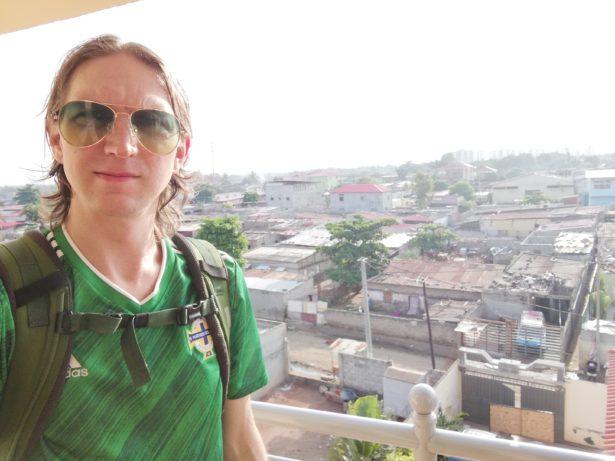
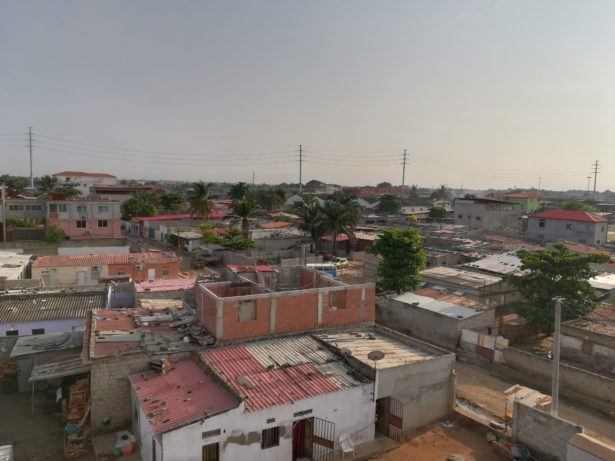
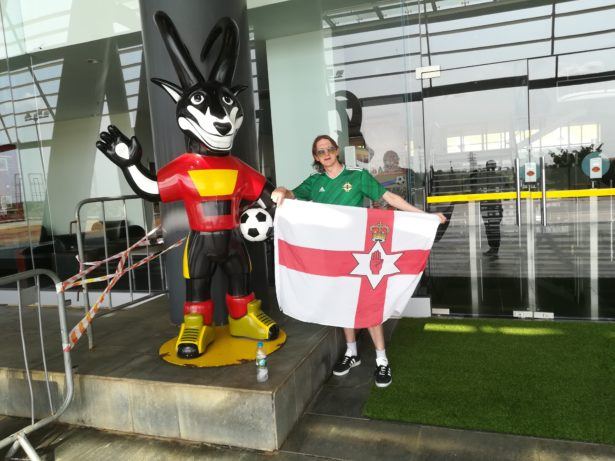
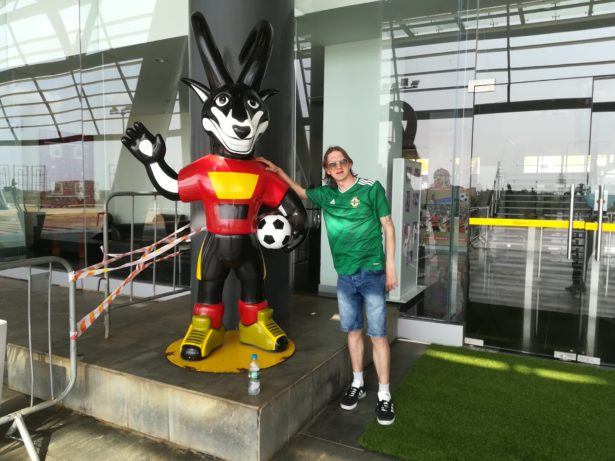
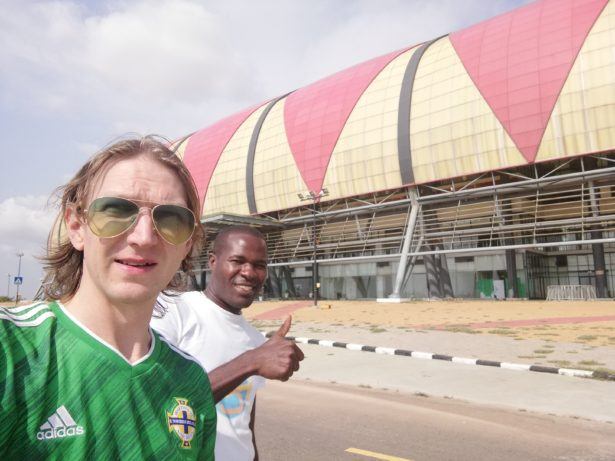
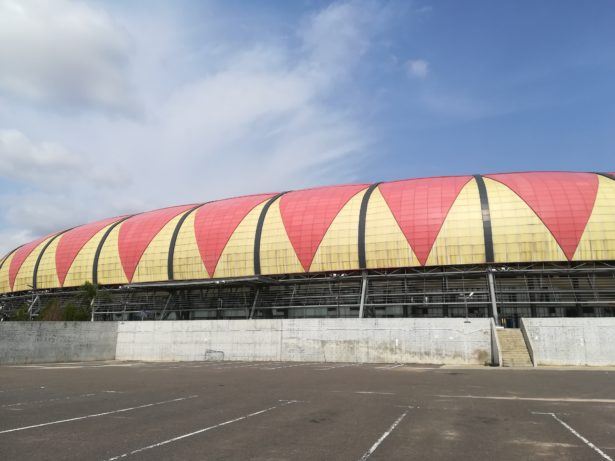
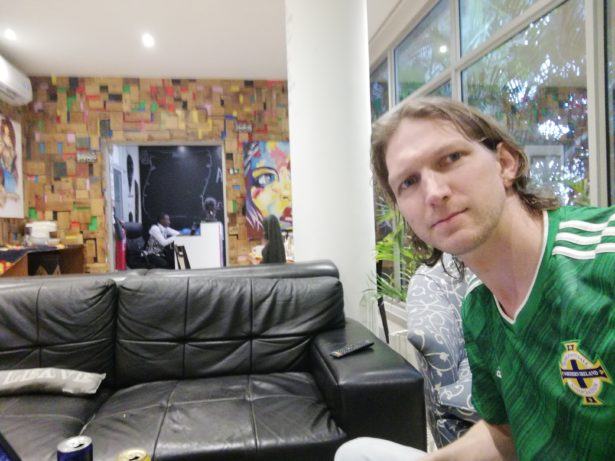
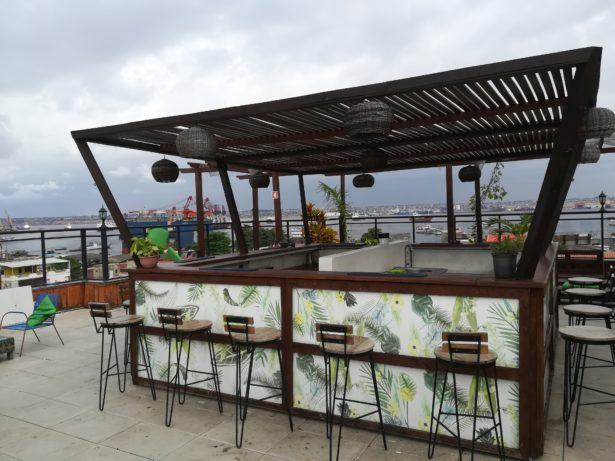
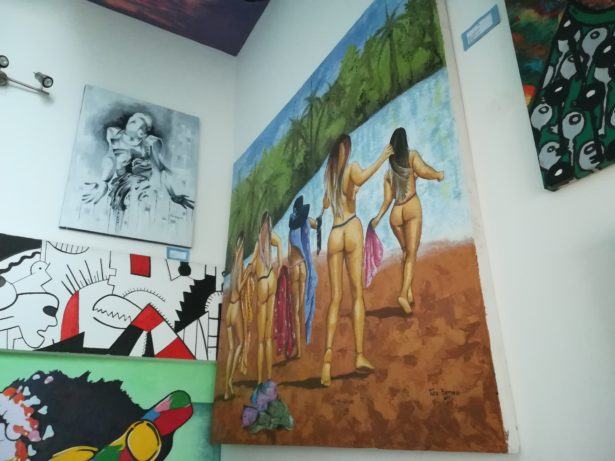
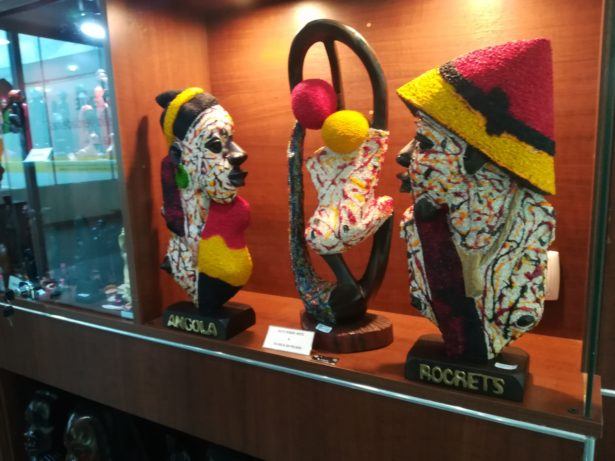
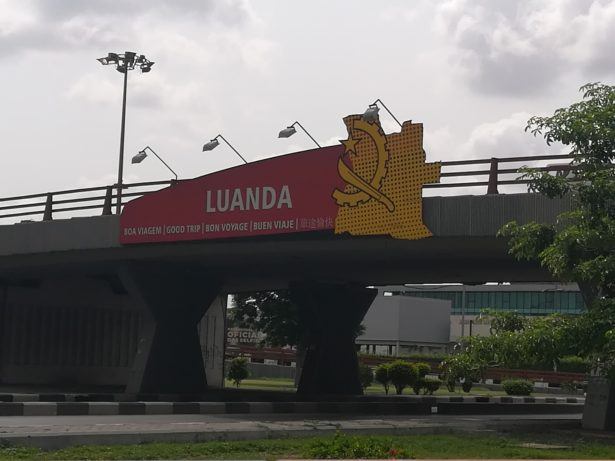
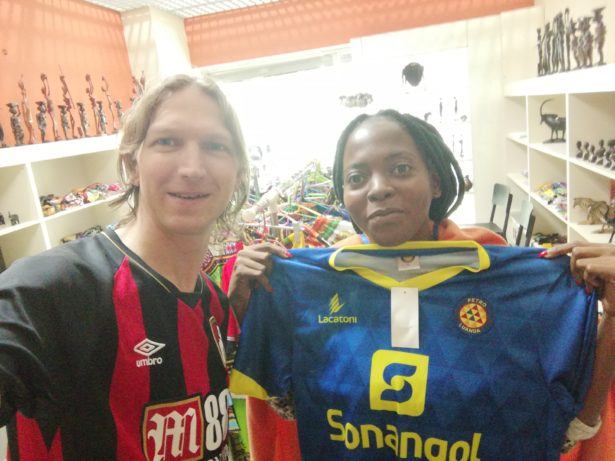
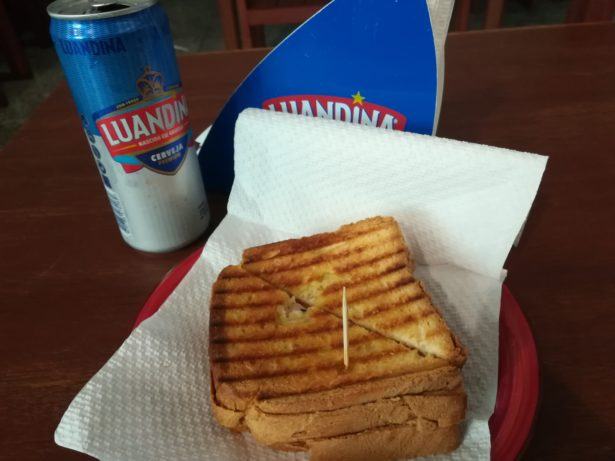
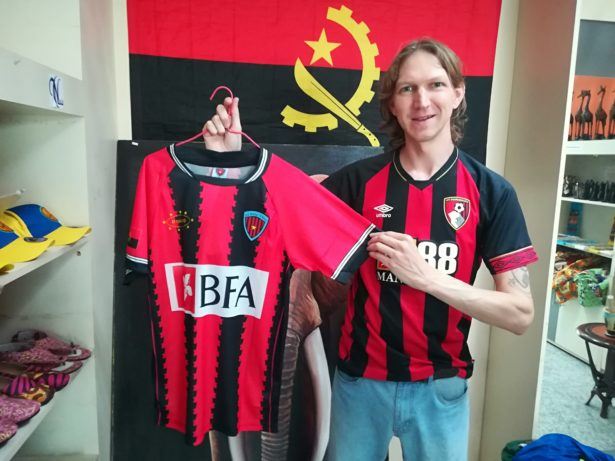
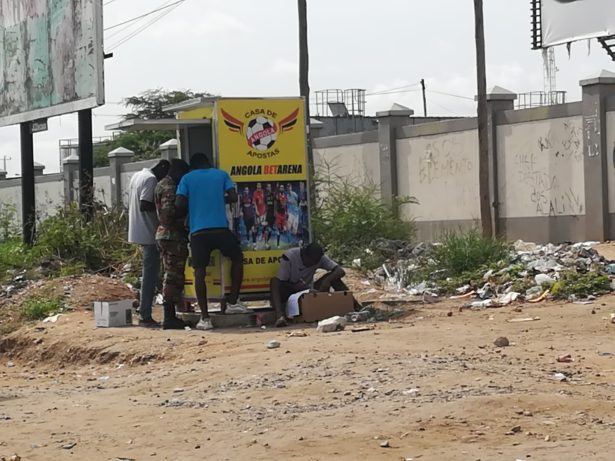
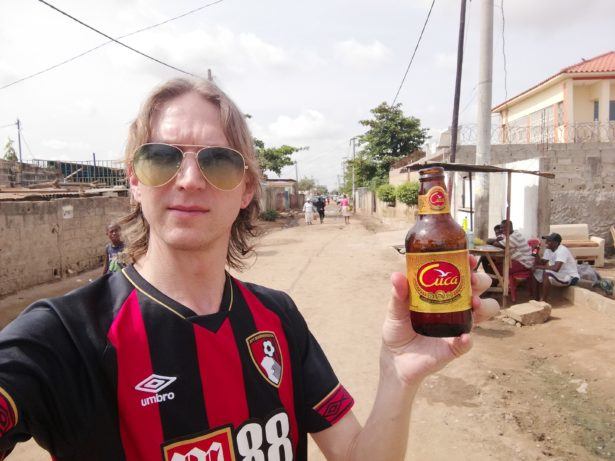
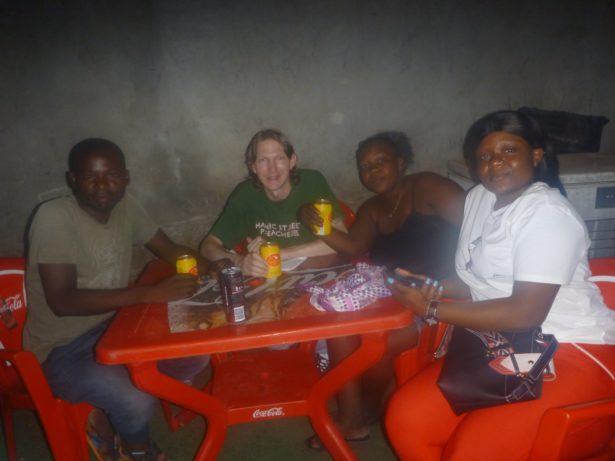
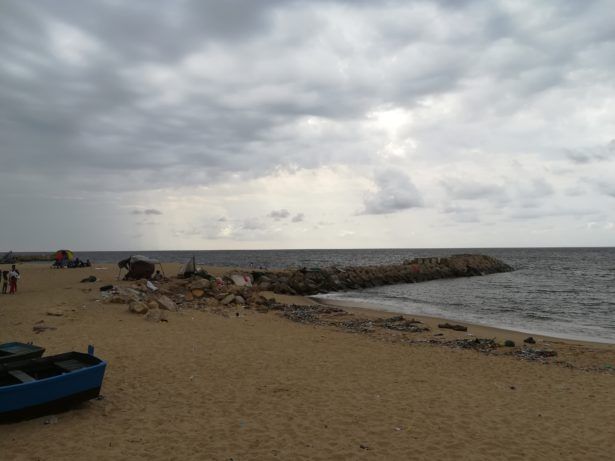
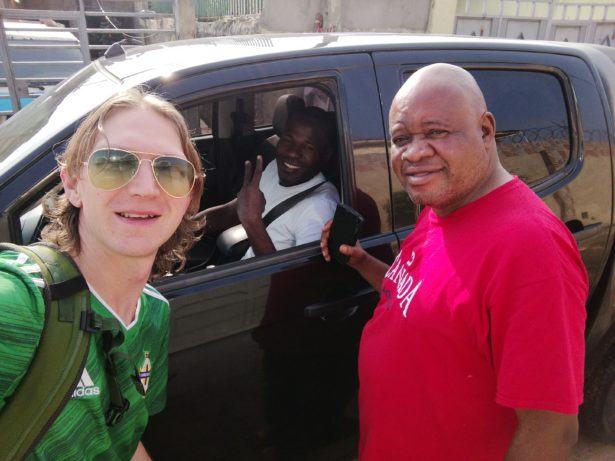
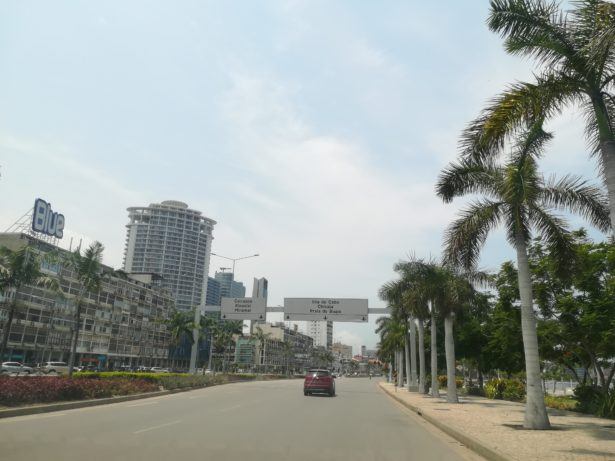
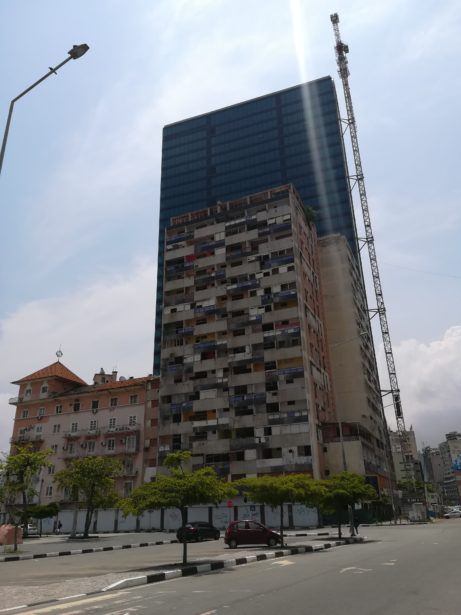
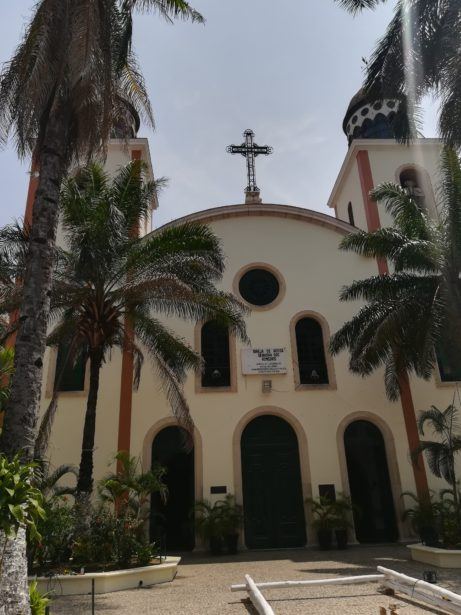
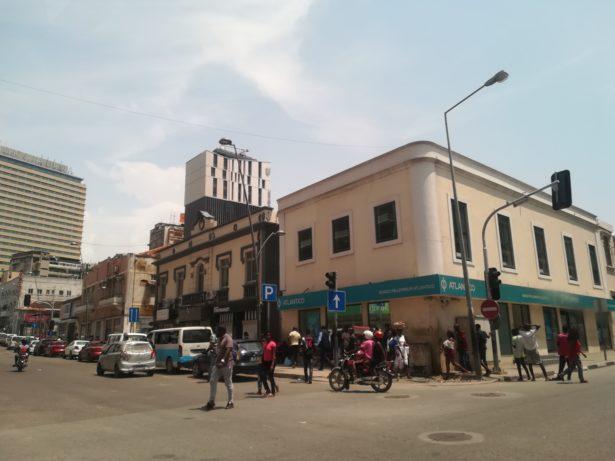
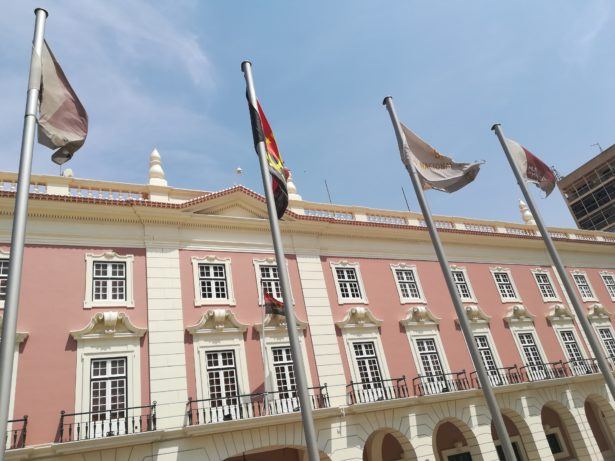
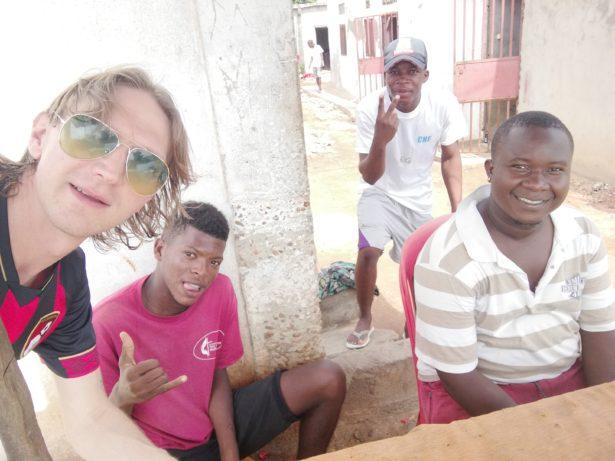
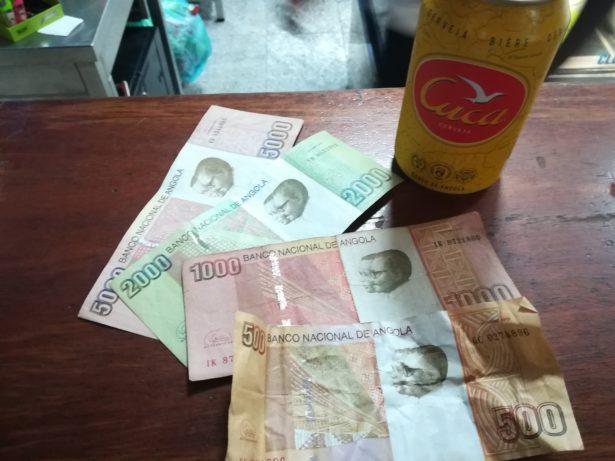
Glad I’m not the only one who has an interest in foreign currency! Just the currency name itself – Kwanza – is pretty cool and intriguing enough that I would want to learn more about the history of it. Plus, I am particularly fascinated by countries who use various colours for their currency. There’s something just simplistically beautiful and artistic about that.
Hi Ray, Thanks for the comment – the Kwanzas are cool and I kept one of each banknote and one of each coin as I do in every real country. Unfortunately countries like USA, Panama and El Salvador all use US Dollars and countries like French Guyana, Belgium and Lithuania all use the dreaded Euro. It is always nice to get the local currency, stamps, flags, banknotes, visas etc. and feel like you reall crossed a border. Sometimes I really despise the EU for removing the Deutch Mark, the Drachma, French Franc etc. Thankfully some EU countries don’t buy into that and Hungary still has the Forint, Czechia the Kroner and Poland the zlotych. Stay safe. Jonny